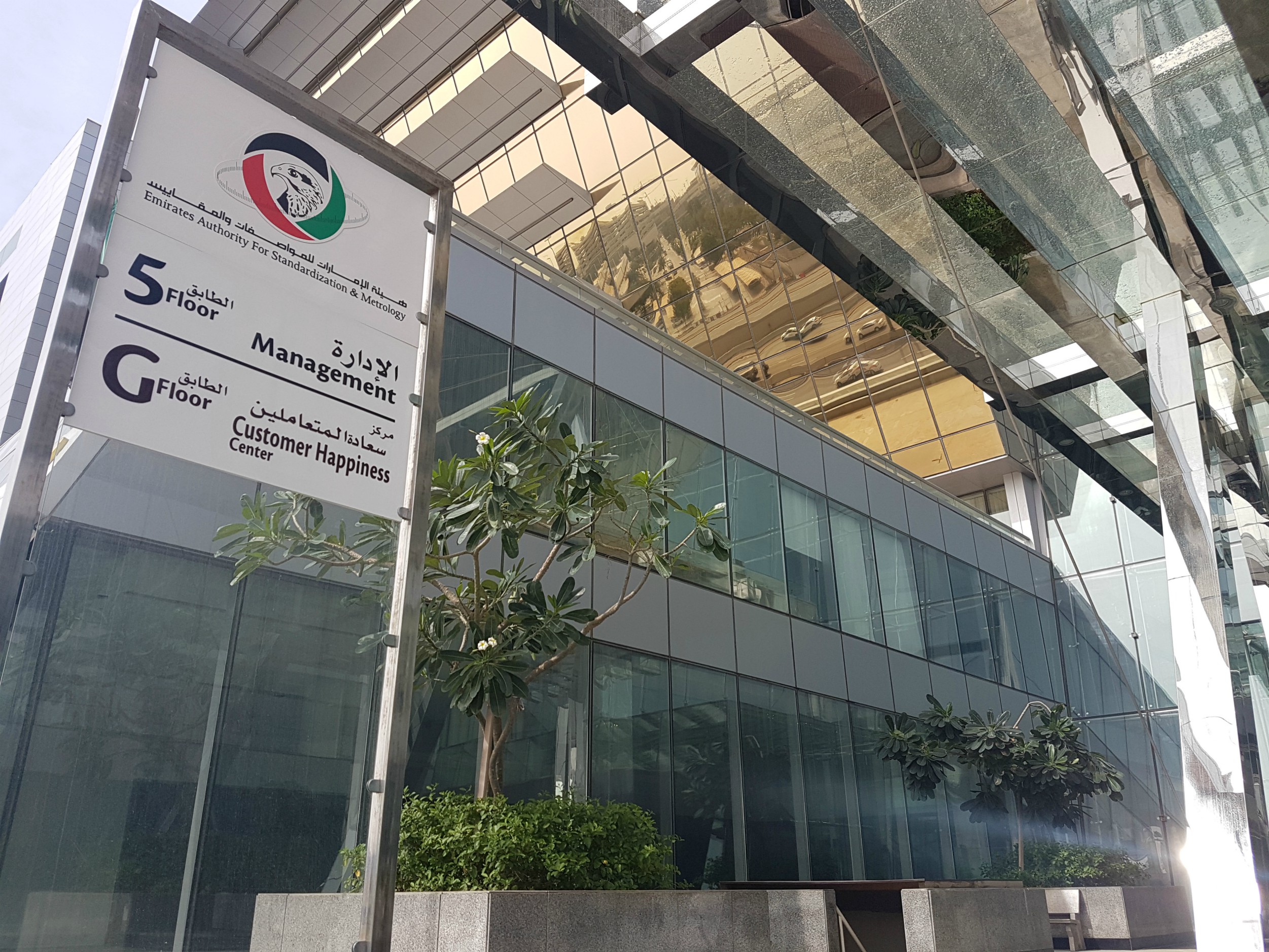
Malaysia’s JAKIM recognises UAE halal products control systems
Photo: The Emirates Authority for Standardization and Metrology sign is seen outside its offices in Dubai, UAE in April 2017. Emmy Abdul Alim/SALAAMGATEWAY.COM
The Malaysian Department of Islamic Development (JAKIM) has officially recognised the United Arab Emirates' Halal Products Control System, national certificates and national halal mark, reported the Emirates News Agency (WAM) yesterday.
JAKIM's recognition of the UAE halal system, which is managed by the Emirates Authority for Standardization and Metrology (ESMA), will facilitate the trade of UAE halal products and acceptance in the Malaysian market as well as in jurisdictions that accept the Malaysian halal systems certification.
JAKIM, Malaysia's national halal certifier, requires foreign halal certification bodies (FHCB) to comply with Malaysia's halal standards for recognition in the different sectors, including MS 1500-2009 for halal food production, preparation, handling and storage, MS 2424:2012 for halal pharmaceuticals, and MS 2200-1:2008 and MS 2200-2:2013 for halal cosmetics and personal care products.
JAKIM officially recognises almost 70 FHCBs, according to its latest list released in April.
Malaysia imported an estimated $2.34 billion in all products from UAE last year, according to data from ITC Trade Map based on United Nations Commodity Trade Statistics Database (UN Comtrade).
The three largest imports were natural or cultured pearls, precious or semi-precious stones and precious metals ($1.02 billion), mineral fuels, mineral oils and products of their distillation ($850.7 million), and plastics ($125.3 million).
At $15.8 million, animal or vegetable fats and oils was the biggest food or food-related product that Malaysia imported from UAE in 2016. This was followed by $13.04 million of beverages, spirits and vinegar, and $3.99 million of edible fruit and nuts, and peel of citrus fruit or melons.
© SalaamGateway.com 2017 All Rights Reserved
